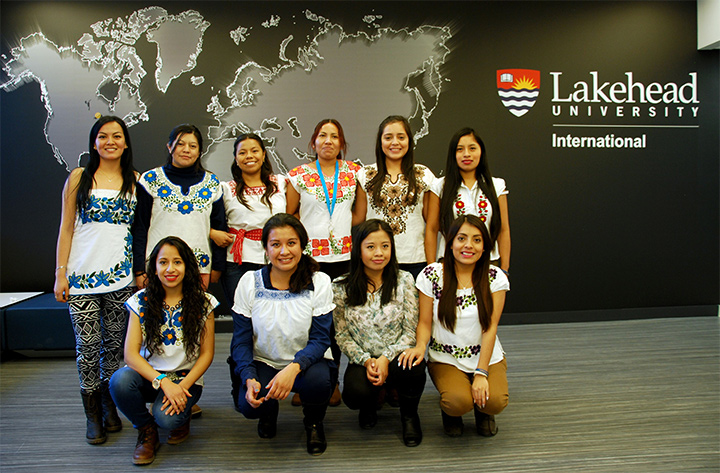Mexican students bring big benefits to Thunder Bay and Orillia

The two Ontario cities of Thunder Bay and Orillia may seem unlikely places for 450 Mexican undergraduates to spend a month of their summer learning English. The Mexicans’ eagerness to do so, however, is a testament to Lakehead University’s success in forging closer ties with their country.
With campuses in both cities, Lakehead has been the leading player in the Mexican government’s Proyecta 10,000 program, which was launched in 2014 with the goal of giving 10,000 students, teachers and researchers the opportunity to brush up on their English in Canada. Mexico also provides scholarships for the students, most of whom come from modest backgrounds.

One big benefit for Lakehead is that the Mexicans stay in residences and use resources connected to the university’s extensive English as a second language (ESL) program that would otherwise barely be used during the summer. International students, mostly from India, China and Nigeria, make up about 15% of Lakehead’s 9,300 full-time students. The university also takes part in another program under which Mexican technical universities send about 700 students to Canada each year.
These students make a sizeable contribution to the economies not only of Thunder Bay and Orillia, but many other communities across the country. A study commissioned by Global Affairs Canada estimates that international students and their visiting families and friends spent $15.5 billion in Canada in 2016, translating into the equivalent of almost 170,000 jobs.
“We’ve put a lot of work into the relationship with Mexico,”
says James Aldridge, Lakehead’s vice-provost, international. The university’s former principal Brian Stevenson, who helped spearhead Proyecta 10,000, has deep ties to the country and previously held senior positions at the Department of Foreign Affairs (now Global Affairs Canada).
Lakehead has focused on building ties with senior education officials in the state of Mexico, one of the country’s 31 states, from where most of the ESL students have been drawn.
“We've been back and forth a number of times,”
says Aldridge. “We've had folks from the state of Mexico come to Thunder Bay and Orillia. They’ve visited the campuses and the residences. They've been sailing on Lake Superior. They've experienced the local climate and figured that they felt comfortable having their students come and stay with us.”
Aldridge also gives credit to the Canadian Trade Commissioner Service (TCS) which, he says, “was very helpful in making us aware of Proyecta 10,000 and steering some students toward us.”
In particular, he singles out the TCS’s role in helping Lakehead and other Canadian universities overcome uncertainty about the program’s future after a new government took office in Mexico City last December.
The program is indeed continuing. Mexico announced in the spring of 2019 that it would send another 2,600 students to Canada for ESL training between June and October. One fifth of them, or about 70,100 more than last year, will be heading to Lakehead.
“Thunder Bay and Orillia in the summer are both spectacular places to be,”
Aldridge notes. “We have all that nature and the outdoors have to offer, as well as having capacity in our residences and in the English language program.”
- Date modified: